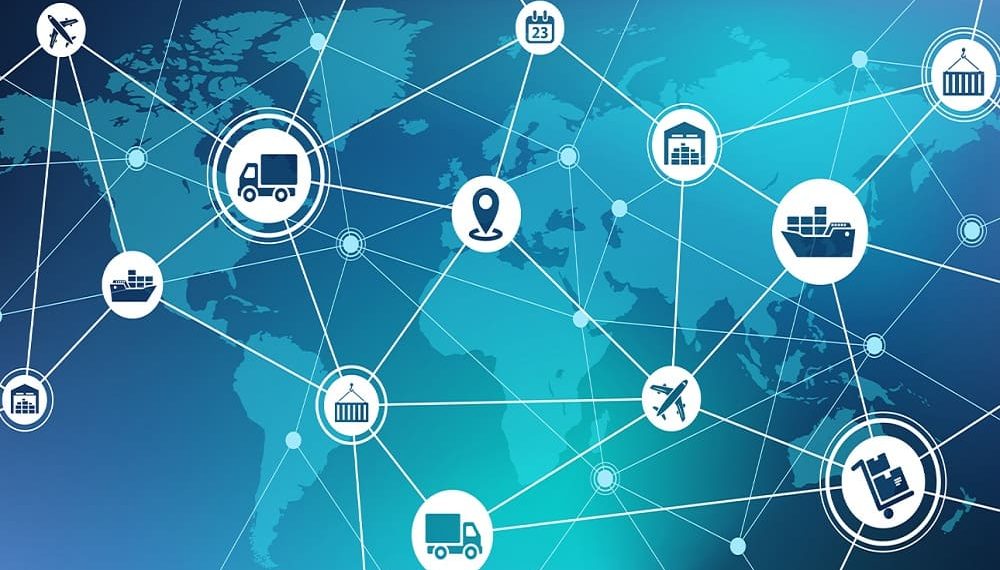It’s a known fact that trade restrictions happen to come in many forms, right from geopolitical issues to natural calamities to pandemics and also trade conflicts, and it goes without saying that in all these scenarios, it is a robust supply chain that’s needed so as to make sure that businesses keep running, losses are avoided, and a competitive edge is retained.
In today’s times, businesses which happen to be engaged in domestic as well as international operations can as well future-proof the way they function and go on to establish new yardsticks in terms of productivity and competitiveness by way of embracing digitalization, which will improve the day-to-day operations and also go ahead and alter the supply chain resilience to a significant extent.
The supply chains happen to hold the key to an organization’s capacity to elevate trust with its set of customers and beyond by way of showing that they can deliver no matter what the situation. Parallelly, the trade world is also undergoing a change, and so are the rules that are part of it. Companies have to keep up with new standards, demonstrate that they can very well manage the risks, and transition rapidly whenever they are asked to do so.
To summarize it, strong supply chain is about getting through the tough times, being ready for the future, and staying competitive in a world that’s moving rapidly. There are a few investments that businesses can go on to make that can go on to deliver supply chain efficiencies and also resilience than digitalization, and here is the reason why:
Smarter data-led ops-
Massive data collection as well as analysis throughout the supply chain can go on to reveal significant patterns and trends and also help in predicting probable snags. By way of making use of ML and advanced analytics, companies can go on to make decisions that are well-informed, optimise the routes and also enhance the operations.
Elevated visibility of the supply chain-
Digital tools such as IoT, GPS, as well as RFID happen to give a clear view of where the business goods are at all times. The insight level allows one to stay ahead of potential disruptions, manage the inventory smarter, and also forecast demand as well as supply with better precision.
Making operations seamless and streamlining costs by way of automation-
Robotics as well as AI happen to be revolutionizing trade through decreasing manual tasks, slashing errors, and cutting down on operational costs. The automation goes on to extend to inventory management, warehouses, and also order fulfillment, thereby making sure to free-up human resources for more strategic initiatives.
Integration along with accountability-
A supply chain that’s digitized happens to be an integrated one, making sure of accountability and thereby helping all parties, right from procurement to distribution and also beyond, to be a tad more responsive and proactive as necessary.
Communication and collaboration that’s much better-
It is well to be noted that digitalization effectively joins all the dots in the supply chain. There can be a more effective interaction between suppliers, manufacturers, customers and logistics providers across digital platforms, and if it gets extended to blockchain and the cloud, it is indeed easy to make sure that everyone happens to be on the same page and is aware of what one needs to know and also curtail any sort of misunderstanding and miscommunication.
A customised customer experience-
Digital tools enable businesses to customize not just offerings but also the way they get offered to individual customer requirements at scale. This kind of personalization goes on to mean that the customers happen to have access to real-time information on the availability, shipping, as well as delivery of products through e-commerce platforms as well as customer portals. All these go on to go a long way in terms of enhancing customer satisfaction as well as loyalty.
Enhanced risk management as well as compliance-
It is worth noting that digitalization helps companies stay compliant with international standards and regulations. Digital platforms go on to provide businesses with the tools to track changes and adhere to compliance requirements, thereby decreasing the risks pertaining to fines and penalties.
Savings in costs-
By way of optimizing the supply chains, digitalization can go on to result in quite substantial cost reduction in costs. Besides the savings on labor costs that happen to be associated with the manual processes, analytics that are effective can very well help in reducing overheads in inventory, and digitally led predictive maintenance can aid in reducing equipment repair costs.
Helping with global sourcing-
Digitalization has all the ingredients in it that can very well open up the supplier world, giving people the opportunity to shop around in terms of most competitive pricing as well as best quality. Cloud-based systems as well as virtual tools make it way easier to manage projects beyond borders as well as time zones, thereby offering businesses an extra edge by way of an effective worldwide sourcing. While all the digital elements and aspects that surround it go on to make quite a compelling case when it comes to investing in supply chain digitalization, this process can be way intimidating, and if in case it is not approached the way it should be, it can turn out to be expensive as well.
Through taking into consideration digitalization, the businesses that happen to be involved in international as well as local trade can go on to future-proof their operations and also set a new benchmark in efficiency and competitiveness, thereby delivering not just enhancement in day-to-day operations but also paving the way for a vital transformation when it comes to supply chain resilience.


































